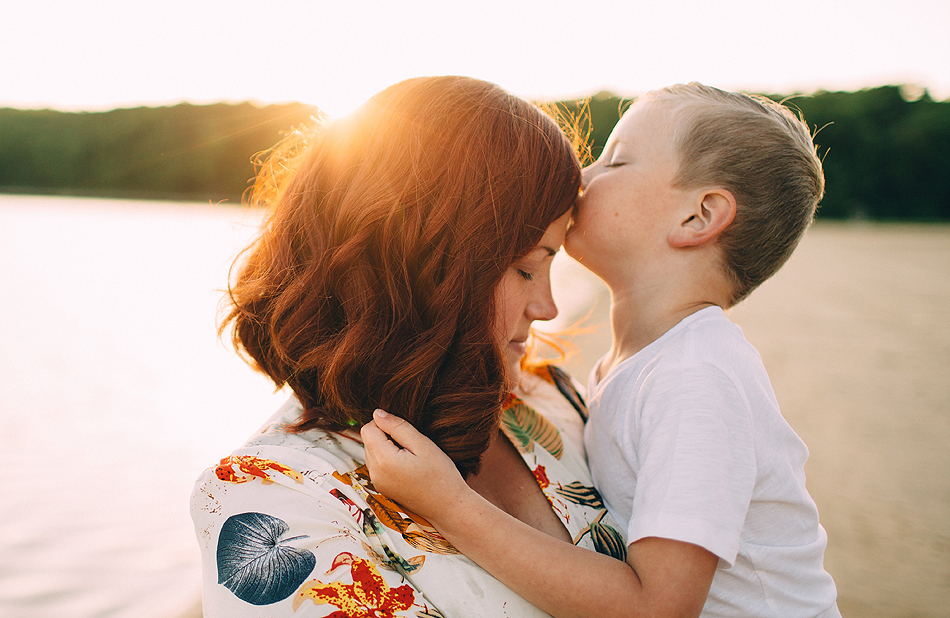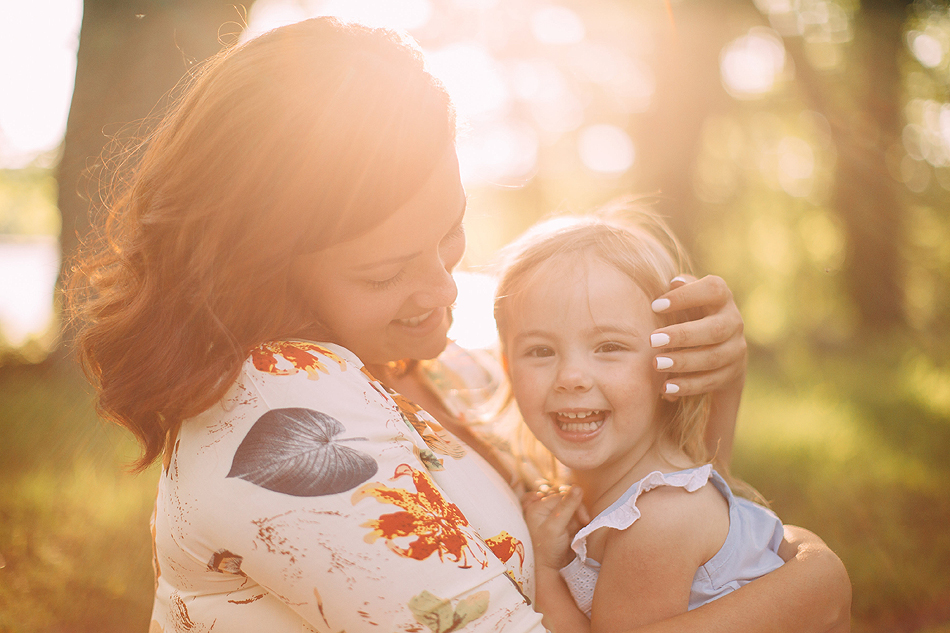
Thoughts on Motherhood: Nature vs. Nurture


My experiences both during pregnancy and after the birth of each of my children were vastly different. I often find myself wondering how much it shaped them–the things that I went through while I carried them inside of me, the things that I went through in the first months after they were born.
I studied psychology and anthropology at length from the time I was in high school, through my undergraduate career, to present. I have always been fascinated by these subjects and I have a strong desire to know what makes us (human beings) who we are. There is much discussion on the topic of nature vs. nurture in the psychology world. In other words, what elements of ourselves are a result of nature (DNA coding that we receive from our parents through biology) versus what elements of ourselves are a result of nurture (how we are raised, what is done to us, the environment that we are raised in, etc.).
We can see clear examples of nature vs. nature in both our physical traits and our personality traits. Here are a couple of examples of nurture at play.

Example one, in children of mothers who smoke during their pregnancies and infancies, there is a much higher rate of asthma and lung problems. This is an example of nurture having an impact on a developing baby. The baby is not biologically predisposed to have asthma, but the outside influence of the mother smoking has an effect, the babies lungs are not properly formed and therefore develops asthma and lung problems.
Example two, children who suffer from malnutrition are more likely to develop learning disabilities. The effects of severe malnutrition (where the child does not receive the essential nutrients from his diet) can directly effect brain development in a negative way. This is another example of nurture having an impact on a developing baby or child. The baby is not biologically predisposed to have a learning disability, but the outside influence of the baby not receiving adequate nutrition has an effect, the child’s brain does not develop properly and the child develops learning disabilities.

These examples make it easy to determine cause and effect, but of course every case is not cut and dry. There are plenty of instances where a child develops asthma, but the child was never exposed to cigarette smoke. Among other factors, it could have been the environment where the child was raised that caused the asthma. Children who grow up in crowded urban neighborhoods have higher rates of asthma than children who grow up in other geographic areas. This, too, is an example of nurture — the child growing up in an urban environment was not born predisposed to develop asthma, the outside influence of pollution in his environment caused the development of asthma.
There are also, of course, instances where a child is not exposed to any of these factors, yet still develops asthma. Likewise there are many instances where a child is not malnourished, or receives excellent nutrition, and still develops a learning disability. The above examples are just examples, there is unlimited variation in causes and effect of nurture and the environment on the development of a person, from the time he is still in utero, all the way through the rest of his life. We are continuously shaped and reshaped by our environment and our experiences.

Let’s move away from nurture for a moment and talk about nature–the things that are biologically programmed into us through DNA, things that are “inevitable.” An example of this would be eye color. There is a specific place in the genetic code of each baby that determines what her eye color will be. This is a result of nature, there is no nurture or outside influence that will change it. If a baby is genetically coded to have blue eyes, she will be born with blue eyes. Nothing can change that — if the mother smokes, if the baby is malnourished, where the baby is raised, and so on and so forth, the eye color will not change.
There are thousands of other examples of things that are genetically predetermined, however, science cannot tell us just exactly how much is predetermined. There are some things that we know for certain are genetically coded (by nature), like eye color, hair color, genetic markers for cancer, etc.; yet there are many other things that we do not know.
Personality is a tremendous mystery. Billions of dollars have been spent researching this topic and there is still no clear answer. Here is an article that is bit old now, but it explains the confusion on the topic well. The bottom line is that scientists do not know (yet) whether personality is a result of nature or nurture.

And all of that was my very roundabout way of coming to my point, that as a mother, I so often find myself wondering why my two children are so different. I cannot help but ask myself if they were born different (nature) or if the circumstances that they were born into (nurture) made them different. And perhaps, more importantly, I ask myself about our life now. How do I treat each of them? How can I nurture each of them in a way that nourishes their little souls, brings out the best versions of who they are, caters to their strengths, & encourages growth in their areas of weakness?
Of course there is no easy answer to those questions. Motherhood is not a perfect science. So much of what we do is a result of how we, ourselves, were raised and also a result of instinct. Perhaps I should have, but I never imagined that motherhood would involve so much instinct. It really is a primal task in so many ways. If I am in another room and I hear one of my children cry out, something happens on a totally subconscious level. My body or instinct takes over and I am immediately compelled to either run to them or sit and wait. My ears take in the sounds of their cry and tell my body how to react before I even have a moment to process what is happening. There are constant examples of instinct ruling my decisions as a mother, from discipline, to love, to teaching, and so on.
In the end, I believe that is what motherhood is — finding a balance between our heads, our hearts, and our instincts. We make the best decisions that we know how to make. We work our hardest and give our children the best lives that we can. In my case, I try to learn from every experience — both in my own upbringing and in my experience as a mother — I take those lessons and apply them where I can.

There is no such thing as perfection in motherhood. As much as I would like to boil it all down to its simplest terms and know “the right way,” I know that there is no such thing. As mothers, we each have to have faith that our way is the right way. I have to stop and give myself grace as often as I can remember to. I hold tight to my belief that God gifted me with my two babies because I am the right mother for them and that as long as I give them my best, I am serving God well and I am serving my children well.
There is also the matter of serving myself, which is a topic that I will write more about very soon — because it is so incredibly important and as mothers, we often put ourselves at the bottom of the list, but that is wrong. I’ll get much more into the why and the how of that soon.
For now, let me close this post by saying that as fascinated as I am by nature vs. nurture, I also know how important is to not get too wrapped up in it. There is no sense in beating myself up over things that happened in the past that cannot be changed. The biggest example of this is some emotional trauma that I experienced during my pregnancy with Marina and during her infancy. I always wonder how much of that pain I passed to her while she was inside of me and even after she was born through my breast milk.
I know that energy is real and can be transferred. I have really beaten myself up about what she may have absorbed from me in her earliest days and months. But in the end, there is nothing that I can do to change it. I can only go forward from here and do my best every single day to give both of my children peace, love, patience, and strength. That is what they need, and that is enough.
// photographs in this post were taken by erin witkowski

Comments (5)
bloggercoral
June 19, 2018 at 9:47 am
Very thought provoking! I enjoyed reading this. Thank you!
Dena
June 19, 2018 at 9:50 am
Thank you so much for reading. ♥️
bloggercoral
June 23, 2018 at 6:49 am
I enjoy your page very much! Thank you!
Anonymous
June 19, 2018 at 7:06 pm
I honestly did nothing different with ny 2 kids but so sooooooooo different, from day dot. Like chalk and cheese. So dont ever wver guilt yrself that trauma all the way back then is but a drop in the ocean. Seriously. I used to debate this before i had Leon followed by a more textbook child. Its mere luck and it has made me think of the magicalness of the universe of a lil personality about to join yr family (when yr pregnant). You have no idea but its fantastically exciting and an adventure even if at times so so trying with those who are diff. Leon still has huge sensory issues, and he has moment where his mood changes wth the snap of a finger. Maybe one day we will find out why, maybe its something we cnt ever know. But its also made us realise its not how perfect you parent either, its about adapting to yr child. And trying not to care what outsiders say because you know them best.
Dena
June 20, 2018 at 8:35 am
“It’s not how perfect you parent either, it’s about adapting to your child.” Ohhhh, I love that so much, Hayley. You are so so so so right! That is exactly the message that I, and I imagine many mothers, need to remember so often. <3